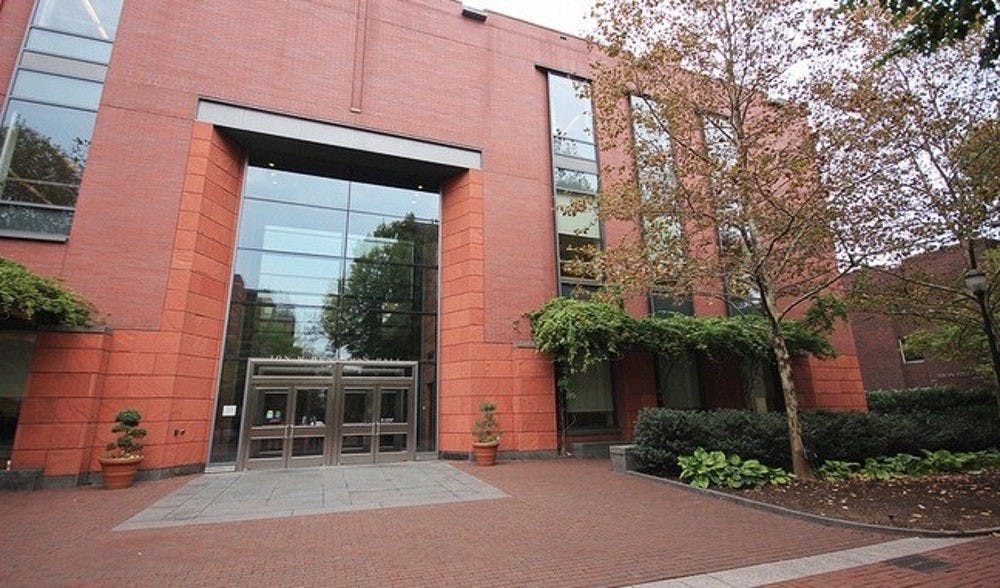The Wharton School’s got new hours this semester. The goal: to improve student health.
Shop’s still open for business 19 hours–a–day, so why have students planned a protest? Is it millennial entitlement? Or is something bigger at stake?
Let’s walk through the decision-making process together. First, several wellness initiatives were proposed by Wharton undergraduates. Next, there were round table discussions between student leaders and faculty. According to recent reports, the talks ended in compromise. It was all by–the–book and progressive, too.
The claims for reducing the hours are thus: 24–hour student spaces contribute to stress, all–hours studying facilitates poor sleep behavior, sleep affects student health. The argument for reducing nighttime hours is that it could improve student wellness.
But let’s examine the evidence for these claims. Search PubMed for yourself: there’s only data for one. Can you guess which?
Poor sleep is related to poor student health. However, there is no evidence that a 24–hour study spot contributes to anxiety, nor that public spaces affect sleep patterns. But let’s not discount these claims altogether.
Allow a personal anecdote.
Two years ago, I was an undergraduate at Cornell University, and during finals week, in the library — of all places —, I came across something strange: a pink suitcase.
SEE MORE ON THIS TOPIC:
Splayed out across two chairs was a young woman, sound asleep beneath a fleece blanket. In her pink suitcase, I imagine, were enough clothes, toiletries, and books to last a fortnight. Over the next ten days, neither the young woman nor the suitcase abandoned their post.
While this account is exceptional, it’s true. Perhaps, her behavior was a warning sign. Maybe it was noticed, maybe not. Perhaps, there was a reason why she couldn’t go home.
I would not recommend this practice. In fact, I doubt I could do it myself. Certainly, this behavior was never normalized. However, the student’s planned stakeout was facilitated by an all–hours study spot.
My point is this: 24–hour public spaces have multiple uses, not just a foolhardy all–nighter. They can be safe, inspirational vestiges for a community of hard–working classmates.
Sometimes, at 3 a.m. you need a reminder that you’re not alone.
As for me, I’m an early riser. And in college, I would study before dawn in a range of open access study spots. Ben Franklin, too, has an opinion on this: “Early to bed, early to rise, makes a man healthy, wealthy, and wise.” If he were on campus today, where and when would Ol' Ben study?
Community spaces have multiple uses, and changes to them send a cultural message.
Each member must interpret these messages for themselves to form a notion of "Campus Culture." These individualized perceptions mediate undergraduate attitudes toward mental health and affect utilization of student wellness services.
So where do you stand? To evaluate your perception of Campus Culture, consider for yourself this question: “Why would I ask for help in a place like Penn?”
I don’t know your response, but here’s mine.
Penn is a great place to reach out. There are tons of options available. Just Google “Penn Wellness” and resources materialize.
Eliminating 24–hour access public spaces does not make sense as a means to improve student health. There's no evidence backing this change. Moreover, cutting the hours sends a negative cultural message about institutional support for student wellness.
This decision, however, is not ill–intentioned. And it’s easy to fix. Return to the status quo.
However, we can do better than that. To improve student wellness, we ought to innovate.
We are a creative lot, here at Penn. We can think of something better to improve student health and contribute to the campus culture.
A good start, I think, might be free gym memberships for all Penn affiliates.
SAMSON HENNESSEY-STRAHS is a research assistant in the Department of Surgery at The Hospital of the University of Pennsylvania. His email address is samson.hennessy-strahs@uphs.upenn.edu.









